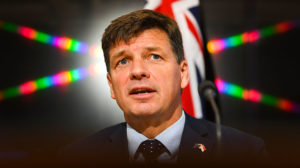The idea of using gas as a transition fuel could be dead in Europe, with research showing operating a gas power plant at current average fuel prices is 10 times more expensive than building new renewable generation.
But market researcher Rystad Energy may have called the end too soon, with gas prices dropping even faster than they rose.
Dutch front-month spot gas prices shot up 187 per cent after supplies from Russia dropped but also because of hydro outages due to water shortages and nuclear plants off-line due to maintenance.
Spot prices rose from an average of €46/MWh ($A71.47) in 2021 to €134/MWh so far this year. The peak price was in August of €330/MWh, the most expensive month ever for European energy, sending the cost of generating power using gas past €700/MWh.
But data today from Reuters shows spot gas prices have plummeted from that August peak and are back around €100/MWh, a critical threshold above which gas generation becomes uneconomic for both utilities and EU countries.
A mild start to winter, a big effort to refill gas storage tanks, strong LNG and Norwegian gas supply, and high levels of wind generation have coincided to bring gas prices down.
New energy market plans
The European Commission recently proposed a plan to decouple gas prices from electricity prices, by encouraging lower power demand but also capping revenue at €180/MWh from non-gas generators such as wind and solar which benefited from the soaring power prices without having to endure the extra costs driving them.
The announcement of this plan was closely followed by calls to decarbonise a power system too heavily reliant on gas from Russia.
“In the end, our green energy transition is the only way to rid ourselves of Putin’s energy yoke and it will create energy sovereignty in Europe,” said European Commission executive vice president, Frans Timmermans, at a press conference in Brussels.
Meanwhile, the head of German Solar Industry Association (BSW), Carsten Körnig, told European media this week that the German government proposal to add a windfall profit to the EU’s energy price break would “poison” the investment market for solar in the country.
He also warned that making the tax retroactive to March 2022 might be unconstitutional.

Rystad says more than 100GW of new renewables can be built in Europe if funds currently being used to run gas power plants are redeployed.
Under this scenario, by 2028 an extra 333GW of renewables costing €1.3/watt will have replaced forecast gas-powered generation and be producing 663TWh of electricity.
By 2050, Europe would have an extra 2,000Twh of renewables – on top of Rystad’s current forecast capacity of 2,385GW of solar PV and wind capacity, and 520 GW of utility scale batteries.
Already gas is struggling against the cheaper generation provided by wind and solar. Rystad says for gas to remain competitive against new renewables, gas prices need to fall to €17 per megawatt-hour (MWh) and carbon prices to €10 per tonne.
A difficult proposition
Moving away from fossil fuel power generation has proved difficult for Europe.
Despite the spike in gas prices, gas-fired generation output actually increased in the first seven months of the year because of a drop in output from hydroelectric and nuclear generation.
Rystad says high-priced gas will be needed this coming winter to keep Europe’s lights on.
The situation should stabilise a bit next year, when EDF brings 30GW of nuclear power back online after maintenance and 50 GW of new wind and solar are commissioned.
“European decision-makers need to decide between continuing to use expensive, less secure gas or investing in cheaper renewables and storage options,” says Carlos Torres Diaz, head of power at Rystad Energy.
“Gas will continue to play an important role in the European energy mix for some time to come, but unless something fundamental shifts, then simple economics, as well as climate concerns, will tip the balance in favour of renewables.”
Rystad says it will take time for Europe to adjust to the new status quo of no Russian gas, after years of depending on its neighbour for the fuel.







